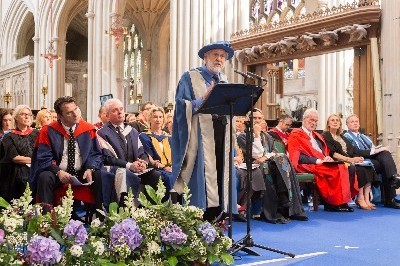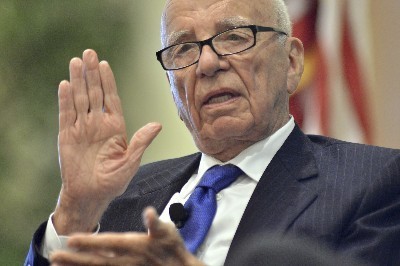Data danger lurking in Sky deal
A great deal has been written about the proposed 21st Century Fox takeover of Sky, but one important aspect has gone unremarked, namely the safety and security of personal data held by a British company once that company has passed to foreign control.
Sky possesses what is probably the UK’s largest and most sophisticated privately held domestic consumption database. It is one from which huge insight can be derived on the opinions and personality of the household. Domestic content consumption data is particularly powerful because one’s behaviour at home is a more authentic representation of personality and opinions than an individual’s public persona reflected in social media. That data allows it to track the leisure time preferences and behaviours of every one of its subscriber households. This asset, as used by a well-run and well-regulated organisation such as Sky, with no apparent political agenda, represents no especial problem. But allow that data to fall into the hands of an owner with an appetite for political leverage and the temptations and opportunities for misuse become great .
Present legislation has failed to keep pace with technological developments. We believe that, over the coming 12 months, the government will seek to energetically address this issue as well as attempt to strengthen and clarify the criteria by which Ofcom will, in future, apply its “fit and proper” test.
We seek an absolute assurance that, prior to making any final decision as to whether to refer the Fox/Sky deal to the Competition and Markets Authority, the secretary of state for digital, culture, media and sport has fully consulted and taken advice from the information commissioner on the implications of the proposed takeover and that advice be made available to parliament, Ofcom and the CMA. We believe there is an urgent need to ensure that, in the view of the information commissioner, sufficient safeguards and sanctions are already in place to prevent Sky’s rich dataset on the behaviours and consumption habits of over 13 million households in the UK and Ireland being in any way misused or misapplied.
Lord Holmes of Richmond, Baroness Kennedy of the Shaws, Baroness Kidron, Lord Lansley, Lord McNally, Lord Puttnam

One of the “largest and most sophisticated datasets in the country” – including the TV viewing, internet and phone records of 13 million households – could be misused for political purposes if Rupert Murdoch is allowed to proceed with his plan to buy out Sky, six members of the House of Lords claim in a letter to the Observer.
The government’s decision on whether to allow the takeover of the broadcaster by Murdoch’s 21st Century Fox may come as early as next week, but a cross-party group of peers led by the film-maker David Puttnam – who was involved in drafting the 2003 Telecommunications Act – have joined forces to highlight what they say is a significant oversight with potentially huge ramifications. Fox currently owns 39% of Sky.
The letter says that “Sky possess what is probably the UK’s largest and most sophisticated privately held domestic consumption database”, able to “track the leisure time preferences and behaviour” of a large proportion of the population of the UK and Ireland.But the safety and security of that data is threatened, the letter says, if “passed into foreign control”. It warns that should it “fall into the hands of an owner with an appetite for political leverage, the temptations and opportunities for misuse become very great indeed”.
Puttnam said: “The deal would give unregulated access to this huge database from which an enormous amount of insight could be extracted. With that information, people can be individually targeted with advertisements personalised to them. And we have this unbelievable situation where we have no regulation of political advertisements, so a party can tell any lie they want.
“I do see this as a very grave threat to our democratic process. What is incredible is this hasn’t been considered at any point. If you look at the asset value of Sky, you suddenly go, ‘Well, hang on there, here’s a bit of unbelievable value but it hasn’t been included in the price’.”
The letter says there is an “urgent need” for the Information Commissioner to confirm data cannot be “misused or misapplied” before a Sky decision is made. It comes as the use of personal data by political parties has come under increasing scrutiny. The FBI and Senate intelligence committee are investigating if this data was used by the Russian government to target US voters. The Information Commissioner’s Office here launched an investigation into the micro-targeting of individual voters with personalised messages after a series of articles in theObserver.
The company at the heart of both US and UK investigations – Cambridge Analytica – is owned by a hedgefund billionaire and Trump donor, Robert Mercer. He is a close associate of Murdoch and Cambridge Analytica’s US office was previously located in Murdoch’s Newscorp building. The Department for Digital, Culture, Media and Sport told Puttnam it was awaiting the IC’s report into political use of data, though it is not due to be delivered until the autumn – after a Sky decision is made.
David Carroll, a professor at Parsons School of Design at The New School in New York, who is involved in legal efforts to uncover how companies use individuals’ data for political purposes, said that the deal would see the UK take a big step towards “the American business model of total deregulation and total consolidation. This huge infrastructure has grown up where you can micro-target ads based on this hugely detailed knowledge about households, and it’s absolutely out of control when it’s applied to political messages. People don’t appreciate how their entire consumer profile is attached to their household identity.
“There is no privacy. These companies know exactly who we are. What we’ve seen in the US with Trump and Cambridge Analytica is how this is used by political players.”
Chi Onwurah, the shadow minister for business, innovation and skills and former head of telecoms technology at Ofcom, said that the value and significance of the data in the Fox/Sky deal hadn’t been taken into account in the government’s consideration of the deal.
“The whole of competition law is based on buying services. So what isn’t reflected anywhere in this process is that we exchange our data for services. It’s hugely valuable, but it’s been completely hidden on the balance sheet. It’s a massive fiduciary theft, in a way. It’s not being sold for the value that it has. And the ramifications of that incredibly valuable data being controlled by vested interests has not even been considered.”
Phil Westcott, managing director of an AI consultancy firm, Filament, who advises companies on how to handle emerging technology, said that what was most alarming was that a single company would own not just this “incredibly rich dataset” but also “all the main information channels into people’s lives”. Although Ofcom bans political advertising on TV, Lord Puttnam said the definition of what is political is a grey area and Westcott points out that at a single stroke Murdoch would gain control of the entire information environment of millions of people.
“He would control people’s access to the internet, TV, digital radio and emails. As an internet service provider, you can speed up or slow down certain websites to control what people see. And if you own all these channels, you’d be able to influence people very subtly. It wouldn’t even necessarily be overtly politically, it could just nudge you in a certain direction by filtering the messaging you receive. And those messages could be completely different from the person next door. What I find most scary about this is how certain news and information could simply be filtered out.”
Source: The Guardian







